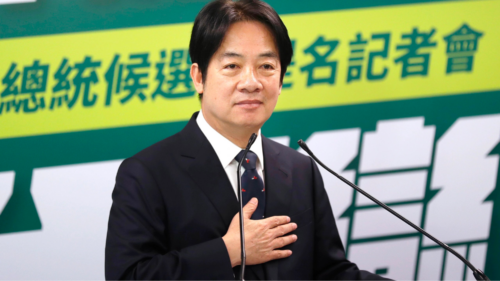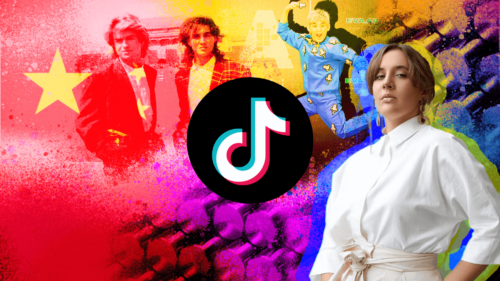Alibaba fires manager accused of rape after social media outcry
Public awareness of sexual misconduct is at an all-time high in China after the arrest of pop star Kris Wu last week. Now, after a female employee documented her alleged assault in an 11-page document, China's biggest ecommerce company is facing a reckoning.

Chinese ecommerce giant Alibaba has fired a male manager accused of sexual assault and disciplined several executives for their mishandling of the case, while pledging to take steps to tackle sexual harassment in the workplace. The news was delivered to staff via company-wide memo (in Chinese) from Daniel Zhang (Zhāng Yǒng 张勇), the chairman and chief executive of Alibaba Group Holding, early Monday morning.
According to Zhang, internal investigations discovered that the accused man, who was an employee at Alibaba’s grocery delivery unit Neighbourhood Retail, had confessed to “intimate acts” with a colleague while she was intoxicated, which constituted a “serious violation” of the firm’s policy. As a result, the company made the decision to fire him, and promised not to hire him again, noting that a police investigation was underway to determine if the supervisor had committed rape or other illegal acts.
In addition to the firing, the memo noted that two executives had resigned over the incident: Lǐ Yǒnghé 李永和, the head of the accused employee’s department, and the division’s human resources chief, Xú Kūn 徐昆. “When the employee reported the horrendous act of rape, they did not react in a timely manner or communicate with the alleged victim effectively, nor did they show compassion to her or listen to her needs,” Zhang wrote.
Judy Tong (Tóng Wénhóng 童文红), Alibaba’s “chief people officer” and one of the company’s 36 partners, will receive a demerit, he said.
An 11-page account of rape
The Monday memo was in response to a viral essay from an unidentified female employee at Alibaba. She alleged that during a work trip on July 27 in the northeastern city of Jinan, her supervisor, Wáng Chéngwén 王成文, brought her to a business dinner to entertain clients and pressured her to drink excessively. As she became too drunk to consent, a client began groping her chest and private areas.
The woman said that when she woke up the next morning, she found herself naked in her hotel room, struggling to recall how the rest of the evening had gone. After checking security footage in the building, she found that Wang had snuck into her room with an additional key card four times throughout the night, with the longest being about 30 minutes.
China news, weekly.
Sign up for The China Project’s weekly newsletter, our free roundup of the most important China stories.
Following her return from the business trip, the woman wrote that she immediately reported the incident to several senior managers in her department. But instead of comforting her and launching an immediate investigation, they dismissed her complaint, with one telling her that she was unfit for the job and that he had been considering hiring men instead of women to avoid similar situations.
Disappointed at the inaction of the management, the woman then resorted to protesting at a cafeteria at Alibaba’s headquarters, she wrote, but security guards quickly stepped in and stopped her demonstration. Eventually, she decided to detail her account in an 11-page essay and publish it via an internal staff platform on August 6.
Social media reactions
Within hours, her story was widely shared on Chinese social media, igniting a string of hashtags that topped trending lists. “Female Alibaba employee sexually assaulted” #阿里巴巴女员工被侵害#, the main hashtag associated with the news, has been viewed almost 900 million times at the time of writing.
The resulting public outrage was swift and intense. Critics accused Alibaba of failing to respond to employee complaints of sexual assault and fostering a “toxic company culture” where women feel obliged to drink on the job and appear at business gatherings as eye candy.
“I’m utterly disgusted by Alibaba. What a soulless company. I hope all women mistreated at Alibaba take proper action, and file police reports where needed,” a Weibo user wrote (in Chinese). Others praised the woman for her courage in coming forward and wished her success in seeking justice and holding her perpetrator accountable.
Some Alibaba employees also joined the chorus of criticism. According to an internal post, over 6,000 Alibaba workers have signed a petition expressing solidarity with the victim and calling on the company to overhaul its workplace culture. As public anger continued to grow both inside and outside the firm, Alibaba shares in Hong Kong were down 2.5% in Monday trading.
A #MeToo reckoning for the Chinese tech industry?
Over the last few years, a slew of Chinese tech companies have been called out for a range of problematic practices, from chronic overtime to toxic workplace cultures fostering sexism and harassment. Alibaba has had its own share of controversy: In its review of Alibaba’s job ads, Human Rights Watch wrote in 2018 that it had discovered “a troubling pattern of gender discrimination, including ads that openly state a preference for male applicants, use female employees’ appearances to attract male applicants, or highlight only males as examples of high-performing employees.” One example is a 2013 recruitment post by Alibaba, which featured photos of female employees in suggestive poses and a line that read, “They want to be your coworkers. Do you want that too?”
The rape allegation at Alibaba comes hot on the heels of the arrest of Chinese-Canadian pop star Kris Wu (Wú Yìfán 吴亦凡), who is currently under criminal investigation after a handful of alleged victims came forward with accounts of him preying on young women in the entertainmentmnet industry, and having sexual relations with underage girls.
The intense scrutiny of the company as another high profile #MeToo case is being closely watched by the public has prompted Aliaba’s management into action. In Monday’s memo, CEO Zhang Yong promised a series of measures, including implementing anti-sexual-harassment training and investigation, creating a dedicated channel for employees to file complaints, and drawing up a zero-tolerance anti-sexual-harassment policy.
In the memo, Zhang also hit out at the “ugly forced drinking culture,” writing: “Regardless of gender, whether it is a request made by a customer or a supervisor, our employees are empowered to reject it.”
The statement, however, was perceived by many critics as mere spin. “If Alibaba were truly committed to fighting its drinking culture, it would have issued a blanket ban on drinking with clients,” a Weibo user said (in Chinese).






